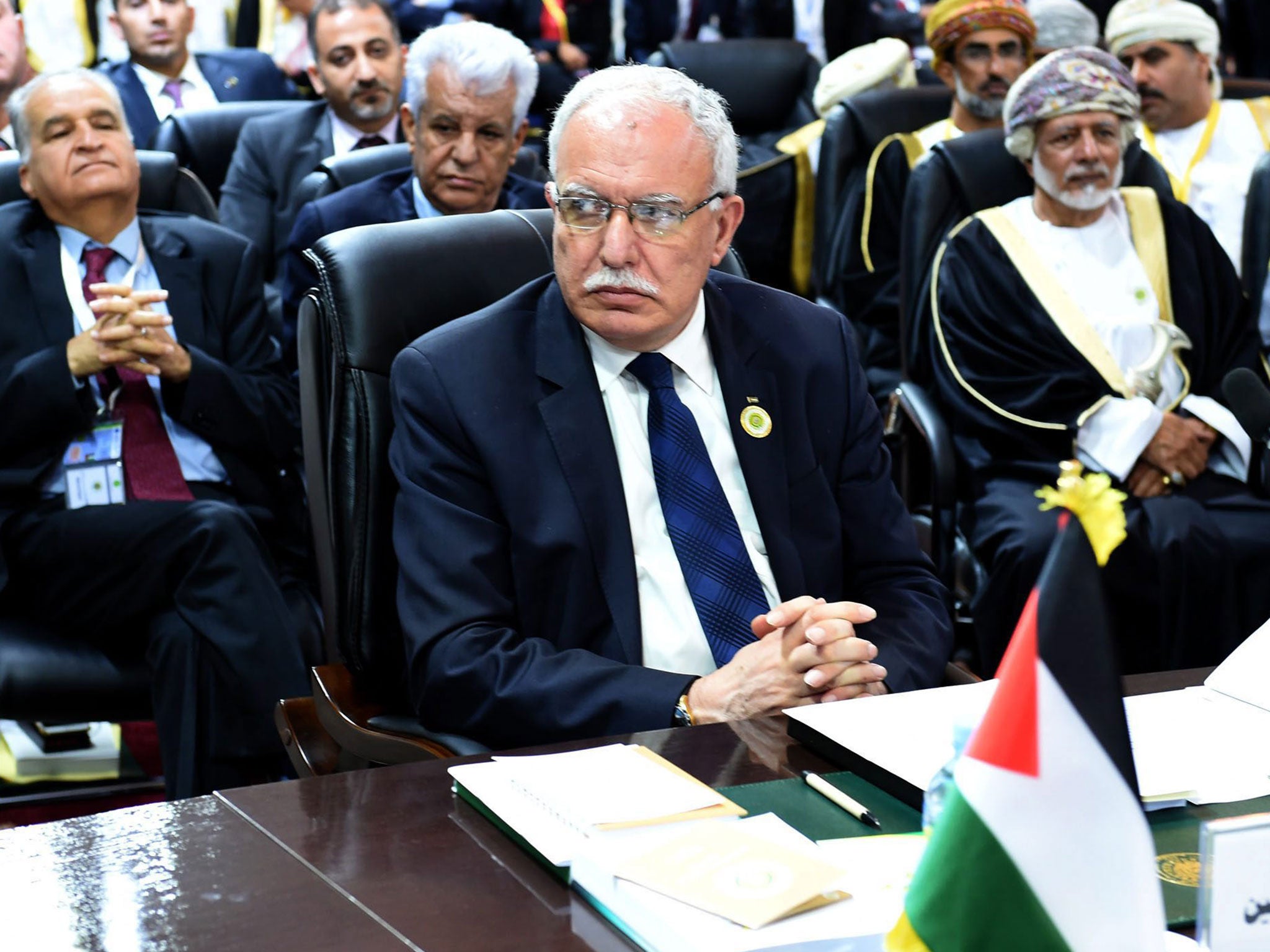Palestinian president plans to sue Britain over 1917 Balfour Declaration and support for 'Israeli crimes'
The declaration announced the British government's support for a Jewish homeland in Palestine

Your support helps us to tell the story
From reproductive rights to climate change to Big Tech, The Independent is on the ground when the story is developing. Whether it's investigating the financials of Elon Musk's pro-Trump PAC or producing our latest documentary, 'The A Word', which shines a light on the American women fighting for reproductive rights, we know how important it is to parse out the facts from the messaging.
At such a critical moment in US history, we need reporters on the ground. Your donation allows us to keep sending journalists to speak to both sides of the story.
The Independent is trusted by Americans across the entire political spectrum. And unlike many other quality news outlets, we choose not to lock Americans out of our reporting and analysis with paywalls. We believe quality journalism should be available to everyone, paid for by those who can afford it.
Your support makes all the difference.The Palestinian president has announced his intention to sue the British Government over a 1917 declaration that paved the way for the creation of Israel.
Mahmoud Abbas’ statement, delivered in his absence by foreign minister Riyad al-Maliki, was given at the opening of this week’s Arab League summit in Mauritania.
It called on other states in the alliance to help the Palestinian government launch a lawsuit against the UK over the Balfour Declaration and the subsequent creation of Israel in 1948.

Mr Abbas accused Britain of supporting “Israeli crimes” since the end of the Mandate for Palestine, and claimed the country was among the parties responsible for the exodus of Palestinian refugees.
“Nearly a century has passed since the issuance of the Balfour Declaration in 1917,” his statement said according to a transcript published by the Wafa news agency.
“And based on this ill-omened promise hundreds of thousands of Jews were moved from Europe and elsewhere to Palestine at the expense of our Palestinian people whose parents and grandparents had lived for thousands of years on the soil of their homeland.”
Mr al-Maliki told delegates in Nouakchott the lawsuit would be filed in an international court but did not give further details.
The speech characterised the Balfour Declaration as a “fateful promise from those who do not own to those who do not deserve”.
A letter from British Foreign Secretary Arthur James Balfour to Lionel Walter Rothschild, a leader of the British Jewish Community, it said the government of the time favoured the establishment of a “national home for the Jewish people in Palestine”.
The text was read as support for the Zionist movement and was later incorporated into a peace treaty with the Ottoman Empire and the British Mandate for Palestine, despite contradicting other agreements.
Israel declared independence in 1948 after the mandate expired and won the subsequent Arab-Israeli War, prompting significant demographic change in the region.
Benjamin Netanyahu, the Israeli Prime Minister, said the proposed lawsuit was part of attempts to deny the Jewish people's "strong connection to our land".
"Of course (the Palestinian Authority) will fail," he added. "But this shines a light clarifying the root of the conflict is the refusal to recognise a Jewish state in any borders."
Gilad Erdan, the Israeli public security minister, called Mr Abbas’ statement “strange but not accidental” coming in the lead-up to 2017, which will mark a century since the declaration and 50 years since the Six Day War that saw Israel seize control of the Gaza Strip, West Bank and East Jerusalem.
“Palestinian leaders haven't been interested in peace for some time already,” Mr Erdan told Haaretz. “The only goal is to de-legitimise Israel.”
A spokesperson for the Foreign and Commonwealth Office told The Independent it was aware of Mr al-Maliki’s speech on Monday but gave no further comment.
The speech came at a time of heightened tension in Israel and the West Bank following a series of attacks by Palestinians and security crackdowns by Israeli forces that have prompted concerns over excessive use of force by the UN.
Join our commenting forum
Join thought-provoking conversations, follow other Independent readers and see their replies
Comments